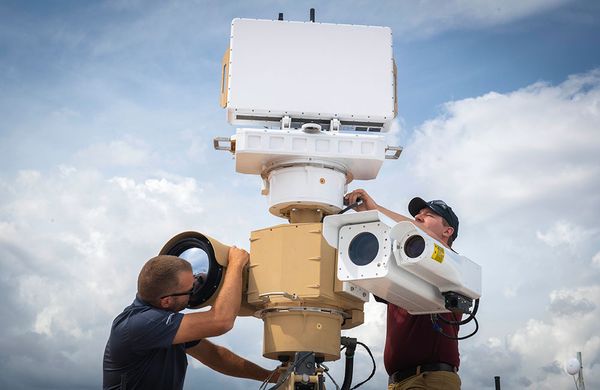Boeing has been going through a lot of turbulence over the past five years, especially over the past two months. This rough patch for the once-dominant aircraft manufacturer can mainly be attributed to controversies surrounding one of its newest airplanes: the Boeing 737 MAX. On February 21, Boeing disclosed that the head of the 737 MAX program is leaving the company.
Change of Leadership
Ed Clark was Boeing's Vice President of the 737 MAX program. He was also general manager of the company's Renton facility, home to the 737 and formerly 757 production lines. Clark had been with Boeing for 18 years and took charge of the MAX program in 2021. He oversaw the MAX's engineering, supply chain, manufacturing, and other support functions.
After the pandemic, Clark helped the company ramp up 737 production after the COVID-19 pandemic. Clark's exit was formally announced on February 21 in an email to employees by Stan Deal, Chief of Boeing Commercial Airplanes. Deal mentioned that these changes are meant to drive Boeing Commercial Airplanes' focus to ensure that every airplane the company delivers meets or exceeds all requirements.

These are the first administrative changes Boeing has made since the infamous events of January 5, when a door plug blew off an Alaska Airlines 737 MAX 9. Since then, Boeing has been under massive scrutiny, primarily regarding the manufacturing processes of its parts and those it receives from contractors. One of these contractors is Spirit AeroSystems, which manufactures the 737 exit door plugs, such as the one that blew off the Alaska Airlines plane.
U.S. regulators have sent teams of inspectors to review quality controls and those of Boeing's suppliers. On a related note, the Federal Aviation Administration (FAA) has banned Boeing from increasing 737 MAX production until it is convinced that the latter has an "adequate grasp over the quality of work in its factories."
FAA personnel are currently undergoing a six-week audit of Boeing's manufacturing practices. Whenever the findings are released, they will be used to inform recommendations for reforms.
.jpg)
An "Engineering Company"?
With Clark leaving the company, Katie Ringgold will take his place. Ringgold is currently the Vice President of 737 delivery operations. A person familiar with Clark's decision informed The Seattle Times that his departure was not voluntary. In other words, Clark was forced out of his position and did not take it upon himself to leave his post.
It was noted that Clark has an engineering background. His successor, Ringgold, has most of her background in business. However, Ringgold has a wealth of experience in aviation. She started in avionics, performing maintenance and troubleshooting on C-130 aircraft in the U.S. Air Force.

Ringgold has been with Boeing since 2011. She began at the company's North Charleston, South Carolina production facility, eventually becoming a senior quality manager. Ringgold then transferred to the Seattle region in 2019, becoming responsible for Boeing aircraft deliveries from all Boeing Commercial Airplanes delivery centers. She later became Vice President of 737 delivery operations, the post she held before her promotion.
While Boeing no doubt considers prior aviation experience when hiring new executives, recent administrative practices have created many questions about the company's overall culture.
For decades, Boeing was known to be a company where nearly everyone in high-profile positions had some engineering background, which was the overall workplace culture.

However, in light of the fatal 737 MAX crashes in 2018 and 2019, it soon became clear that certain aspects of the company's once-regarded engineering culture were lacking. Many have quickly noted that Boeing has become more of a "business-centered" company than anything else. The implications or benefits these new administrative steps will have on Boeing's operations will remain to be seen as time goes on.
Delta Air Lines Commits $250 Million to Forge a New Southern Powerhouse » VIDEO: 6 Injured After Car Crashes Into DTW Check-In Counters » Private Jet Carrying Eight Crashes During Takeoff in Bangor, Maine »
Comments (0)
Add Your Comment
SHARE
TAGS
NEWS Boeing Boeing 737 MAX Ed Clark CEO 737 MAX ControversyRECENTLY PUBLISHED
 FAA Finalises ‘Exceedingly Rare’ Rules After Deadly DCA Midair
In the shadow of the first anniversary of the deadliest midair collision in recent American history, the Federal Aviation Administration (FAA) has moved to permanently rewrite the rules of the sky over the nation’s capital.
STORIES
READ MORE »
FAA Finalises ‘Exceedingly Rare’ Rules After Deadly DCA Midair
In the shadow of the first anniversary of the deadliest midair collision in recent American history, the Federal Aviation Administration (FAA) has moved to permanently rewrite the rules of the sky over the nation’s capital.
STORIES
READ MORE »
 Washington D.C. Activates "Athena" Sensor Web to Shield National Capital Airspace
As the United States enters a landmark year of national celebration and global sporting events, the defence of the National Capital Region (NCR) has undergone a silent yet profound technological evolution.
STORIES
READ MORE »
Washington D.C. Activates "Athena" Sensor Web to Shield National Capital Airspace
As the United States enters a landmark year of national celebration and global sporting events, the defence of the National Capital Region (NCR) has undergone a silent yet profound technological evolution.
STORIES
READ MORE »
 Delta Air Lines Commits $250 Million to Forge a New Southern Powerhouse
In a move that cements the "Silicon Hills" as a primary theatre of war for North American aviation supremacy, Delta Air Lines has today, January 26, 2026, finalised a staggering $250 million investment into Austin-Bergstrom International Airport (AUS).
STORIES
READ MORE »
Delta Air Lines Commits $250 Million to Forge a New Southern Powerhouse
In a move that cements the "Silicon Hills" as a primary theatre of war for North American aviation supremacy, Delta Air Lines has today, January 26, 2026, finalised a staggering $250 million investment into Austin-Bergstrom International Airport (AUS).
STORIES
READ MORE »



